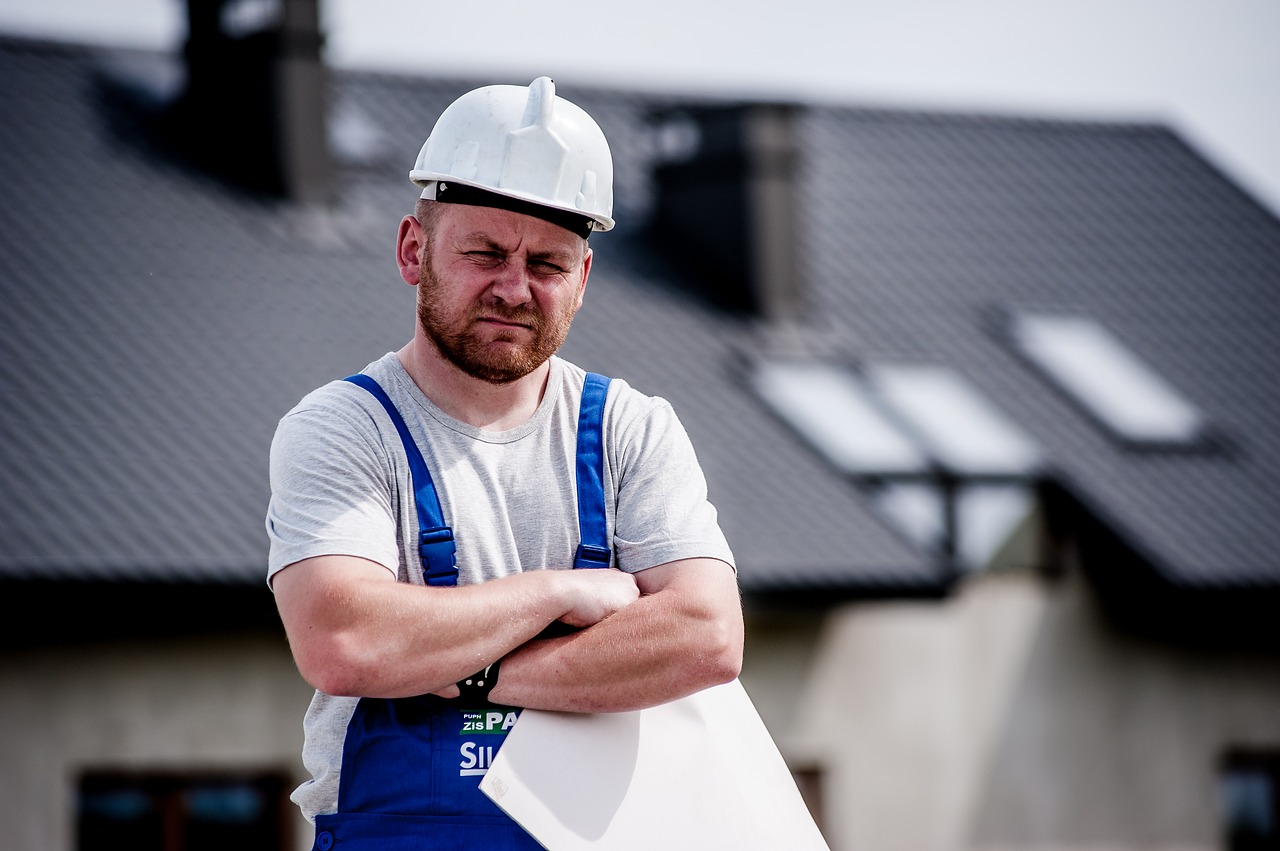A sturdy base is crucial for a safe and secure home, providing stability and ensuring the house stands strong against time. However, foundation issues can compromise a home’s structural integrity, leading to various problems if not addressed promptly.
When a home’s base is damaged, it can lead to significant safety risks and structural issues, putting the well-being of its occupants at risk. Timely intervention is essential to maintain the stability and integrity of a home, preserving its value and ensuring the safety of those who live there.
By addressing foundation problems early, homeowners can prevent more severe issues from arising, safeguarding their home and loved ones.
Understanding Your Home’s Foundation: The Cornerstone of Structural Safety
A strong foundation is the backbone of any home, providing the necessary support for the entire structure. Understanding your home’s foundation is crucial for maintaining its stability and safety.
The type of foundation used in a home can significantly impact its durability and resistance to environmental factors. There are several types of home foundations, each with its advantages and disadvantages.
Types of Home Foundations
Homes can be built on various types of foundations, including slab, crawl space, and full basement foundations. The choice of foundation depends on factors such as soil conditions, climate, and the design of the house.
- Slab Foundations: A slab foundation is a single layer of concrete that covers the entire footprint of the house. It’s a cost-effective option but can be prone to cracking.
- Crawl Space Foundations: Crawl space foundations involve a short wall that elevates the house above the ground, providing access for plumbing and electrical repairs.
- Full Basement Foundations: Full basement foundations are essentially a full-story underground structure that can provide additional living space.
The Role of Foundations in Building Stability
The foundation plays a critical role in transferring the weight of the house to the soil, ensuring that the structure remains stable and level. A well-designed foundation helps to distribute the load evenly, preventing settlement issues that can lead to cracks and other forms of damage.
Foundations also help to resist external forces such as earthquakes and soil erosion, which can compromise the stability of the house.
Common Foundation Materials and Their Properties
The choice of foundation material is critical to the durability and stability of a home. Common materials include concrete, steel, and wood, each with its properties and requirements for maintenance.
| Material | Properties | Maintenance Requirements |
| Concrete | Strong, durable, resistant to pests | Sealing cracks, ensuring proper drainage |
| Steel | High strength, resistant to pests and decay | Protecting against corrosion, regular inspections |
| Wood | Cost-effective, can be treated for pest resistance | Regular inspections for rot and pest damage, maintaining dry conditions |
Understanding the type, role, and materials used in your home’s foundation is essential for maintaining its structural integrity and ensuring the safety of its occupants.
Professional Foundation Repair Methods and Techniques
To address foundation damage, professionals rely on a variety of repair methods tailored to the specific needs of each home. Foundation issues can arise from various factors, including soil settlement, water damage, and structural wear and tear. Effective repairs require a comprehensive understanding of the underlying causes and the most suitable techniques to address them.
Hydraulic Pier Installation
Hydraulic pier installation is a widely used method for stabilizing foundations, particularly in areas with unstable soil. This technique involves driving steel piers into the ground until they reach a stable soil layer or bedrock, providing a solid base for the foundation. By transferring the weight of the structure to a more stable depth, hydraulic piers can effectively halt further settlement or movement.
Slab Stabilization
Slab stabilization is another critical technique used to repair foundations, especially in homes with slab-on-grade construction. This process involves injecting a specialized material under the slab to fill voids and lift the concrete back to its original position. By stabilizing the slab, homeowners can prevent further damage to their property, including cracks in walls and floors.
Wall Anchoring Systems
For homes experiencing bowing or leaning walls due to foundation issues, wall anchoring systems offer a reliable solution. These systems involve installing anchors that are attached to the wall and anchored into stable soil or rock outside the foundation. By providing additional support, wall anchoring systems can prevent further wall movement and help restore the structural integrity of the home.
Crack Injection Solutions
Cracks in a foundation can lead to significant problems if left unaddressed, including water intrusion and further structural damage. Crack injection solutions involve filling these cracks with a specialized epoxy or polyurethane material that seals the crack and restores the foundation’s strength. This technique is effective for repairing minor to moderate cracks and preventing further deterioration.
By employing these professional foundation repair methods and techniques, homeowners can ensure that their homes remain safe and structurally sound. Whether it’s hydraulic pier installation, slab stabilization, wall anchoring systems, or crack injection solutions, each method is designed to address specific foundation issues, providing a long-lasting solution to foundation problems.
The Impact of Foundation Issues on Home Value
A home’s foundation is a critical factor in its overall value, affecting everything from resale potential to insurance premiums. Foundation issues can lead to significant problems if not addressed promptly, impacting not only the structural integrity of the home but also its market value.
When considering the sale of a home, foundation issues can be a major concern. Real estate considerations play a significant role in determining a home’s market value, and any damage to the foundation can lead to a decrease in value. Potential buyers may be deterred by the presence of foundation damage, making it essential to address these issues before selling a property.
Real Estate Considerations
Foundation issues can significantly impact a home’s resale value. A damaged foundation can lead to costly repairs, which can be a major turn-off for potential buyers. It’s crucial to disclose any foundation problems when selling a home to avoid potential legal issues. By addressing foundation issues upfront, homeowners can increase their chances of selling their property quickly and for a fair price.
Insurance Implications
Foundation issues can also have insurance implications. Homes with foundation damage may be considered high-risk, leading to increased insurance premiums or even denied claims. Homeowners should be aware of the potential insurance implications of foundation issues and take steps to mitigate these risks by addressing foundation problems promptly.
Property Assessment Factors
Property assessment factors, including the condition of the foundation, can impact a home’s tax assessment. A damaged foundation can lead to a decrease in property value, resulting in lower tax assessments. However, it’s essential to note that a lower tax assessment may not always be beneficial, as it can indicate a decrease in property value.
In conclusion, foundation issues can have far-reaching consequences for homeowners, affecting not only the structural integrity of their home but also its value and marketability. By understanding the impact of foundation issues on home value, homeowners can take proactive steps to address these problems and protect their investment.
Essential Foundation Repair Services for Long-term Stability
To safeguard your home’s future, it’s essential to invest in reliable foundation repair services. Foundation issues can lead to significant problems if left unaddressed, compromising the structural integrity and safety of your home.
Reliable foundation repair services include a range of techniques and methods designed to address specific foundation problems. These services are crucial for preventing further damage, maintaining property value, and ensuring the well-being of your family.
Some of the key foundation repair services include regular inspections, maintenance, and repairs. These services help identify potential issues before they become severe, allowing for prompt intervention.
“A well-maintained foundation is the cornerstone of a safe and secure home. Investing in foundation repair services is a proactive step towards protecting your home’s long-term stability.”
By investing in essential foundation repair services, homeowners can enjoy peace of mind knowing their home is protected from potential foundation-related issues. These services not only address existing problems but also help prevent future damage.
- Regular inspections to identify potential issues early
- Maintenance services to prevent foundation problems
- Repair services to address existing foundation damage
By choosing a professional foundation repair service, homeowners can ensure their home remains stable and secure for years to come. These services provide the necessary expertise and equipment to address foundation issues effectively.
Prevention and Maintenance: Protecting Your Foundation Investment
Effective foundation maintenance requires a combination of proper drainage, soil management, and regular inspections. By taking proactive measures, homeowners can safeguard their foundation investment and prevent future issues.
Drainage Solutions
One of the most critical aspects of foundation maintenance is ensuring proper drainage around the home. Installing French drains or adjusting the grading around the house can help divert water away from the foundation, reducing the risk of water damage and soil erosion. This simple step can significantly mitigate the likelihood of foundation problems.
Soil Management
Soil management is another vital component of foundation maintenance. Monitoring soil moisture levels and preventing soil compaction can help maintain a stable foundation. Homeowners can achieve this by avoiding heavy machinery near the foundation, planting trees and shrubs at a safe distance, and using mulch to retain moisture.
Regular Inspection Guidelines
Regular inspections are crucial for identifying potential foundation issues before they become severe. Homeowners should check for cracks in walls and floors, signs of settlement, and other indicators of foundation problems. By catching these issues early, homeowners can address them promptly and avoid costly repairs.
- Inspect the foundation for cracks and signs of damage
- Check for uneven or sagging floors
- Monitor for water accumulation around the foundation
By following these guidelines and maintaining a proactive approach to foundation maintenance, homeowners can protect their investment and ensure the long-term stability of their home.
Cost Analysis: Understanding Foundation Repair Expenses
Foundation repair expenses vary widely, and understanding these costs is essential for homeowners. The cost of structural foundation repairs can depend on several factors, including the extent of the damage, the methods used for repair, and the location of the property.
A professional foundation repair service can provide a detailed estimate of the costs involved, including the cost of materials, labor, and equipment. This estimate is crucial for homeowners to plan and budget for the repairs.
Key Factors Influencing Foundation Repair Costs
- Extent of the damage
- Repair methods used
- Location of the property
- Type of materials used
Investing in foundation repairs can have long-term benefits, including the prevention of further damage, maintenance of property value, and ensuring the safety and well-being of the family. By understanding the costs involved, homeowners can make informed decisions about their property.
Homeowners should consider obtaining multiple quotes from reputable foundation repair services to compare costs and services. This approach can help in finding the best value for the investment.
By prioritizing foundation repairs, homeowners can protect their investment and enjoy peace of mind, knowing that their home is stable and secure.
Securing Your Home’s Future Through Professional Foundation Care
A strong and stable foundation is the cornerstone of any safe and secure dwelling. When foundation issues arise, it’s imperative to address them promptly and effectively. By investing in professional foundation repair services, homeowners can prevent further damage, maintain their property’s value, and ensure the well-being of their family.
Professional foundation care is essential for maintaining a home’s stability, safety, and value. Foundation repair experts provide the necessary expertise and equipment to address foundation issues, offering a comprehensive solution to foundation problems. This not only provides peace of mind but also protects a home’s long-term stability.
By prioritizing foundation care and investing in professional foundation repair, homeowners can enjoy a safe, secure, and stable home for years to come. Effective foundation care is a critical aspect of homeownership, and by taking proactive steps, homeowners can safeguard their investment and ensure their home remains a safe haven.
FAQ
What are the signs that indicate a home needs foundation repair?
Visible cracks in walls or ceilings, uneven or sagging floors, and doors and windows that suddenly don’t close properly are common signs that a home needs foundation repair.
What are the different types of home foundations?
There are several types of home foundations, including slab, crawl space, and full basement foundations, each with its own advantages and disadvantages.
How do foundation issues affect a home’s value?
Foundation issues can significantly impact a home’s value, affecting its resale value, insurance premiums, and property assessment.
What are some common foundation repair methods?
Hydraulic pier installation, slab stabilization, wall anchoring systems, and crack injection solutions are some common foundation repair methods used to address specific issues related to a home’s foundation.
How can homeowners prevent foundation issues?
Homeowners can prevent foundation issues by employing drainage solutions, such as installing French drains, managing soil moisture levels, and conducting regular inspections to identify potential problems early.
What is the cost of foundation repairs?
The cost of foundation repairs can vary widely, depending on the extent of the damage, the methods used, and the location, and a professional foundation repair service can provide a detailed estimate of the costs involved.
Why is it essential to hire a professional foundation repair service?
Hiring a professional foundation repair service is essential to ensure effective and long-lasting repairs, as they have the necessary expertise and equipment to address foundation issues.
What are the benefits of timely foundation repairs?
Timely foundation repairs can prevent further damage, maintain a property’s value, and ensure the safety and well-being of a home’s occupants.
How do foundation repairs improve home safety and structural integrity?
Foundation repairs improve home safety and structural integrity by addressing potential issues before they escalate into major problems, ensuring the stability and security of a home.







